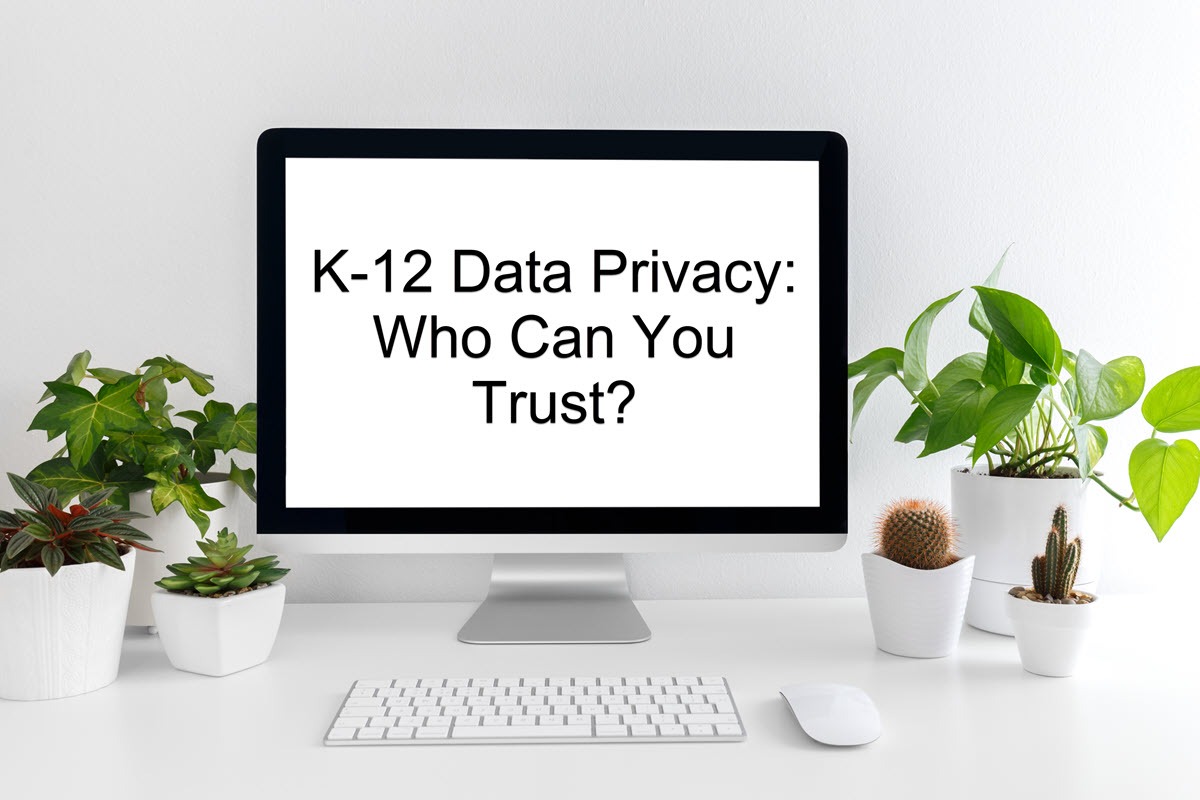
During the last six years we have seen amazing growth in education technology use and leveraging of innovation across industries to help us reach students in different ways, enhance their learning, and monitor and track their progress. Unfortunately, with the proliferation of technology comes data leakage and the risk of losing student data. With K-12 data privacy at risk, schools must have a way to determine who to trust and how to determine and measure the security of the technology they introduce. 1EdTech has done a remarkable job of laying the foundation; the government’s Secure by Design initiative is also helping to foster more awareness about the need for better data governance. And, GG4L is leading the way by revolutionizing data integration.
Covid Changed Everything for K-12 Data Privacy
Most schools were working with some plan toward increasing reliance on edtech, but the pandemic forced every school district to rapidly implement new technology to deliver the curriculum remotely.
Bill Lohman, from the Vernon Parish School Board, explained how his district was approaching technology:
“[Our district] never really had a lot of money. We were using Title I funds to put about a thousand Chromebooks a year out, and then boom! Covid hits; kids have to go home – and we’re standing there with our pants down. Don’t have enough devices. Teachers don’t know how to use Google, so we do the best we can to catch up.”
What Are You Doing with My Data? The K-12 Data Privacy Dilemma
For Lohman, Clever was their only option at the time. Because the state has many rules for PII, they were simply trying to get everything in place under the pressure of the pandemic. But it didn’t take long for Lohman to start questioning what was happening with their data, and when Google started making their API changes, Lohman realized that the “login with Google” button was creating risk. He couldn’t see what was really being shared or why Facebook, Tik Tok, and other things were showing up on his filter when students were using edtech apps, leading him to question what was being done with the data.
Enter GG4L’s PII Governance Console
Lohman turned to GG4L for help, and used GG4L’s Data Governance Console to see where their district’s K-12 data privacy was at risk. The console shows at-risk applications. Out of approximately 1,400 Google apps that were used last year by the district, 763 were at-risk applications, and only 16 were 1EdTech approved.
The Data Governance Console is an extension that runs inside of the Google console, and it tracks what apps are being used. With this console, we can see what data is being shared and whether they are 1EdTech approved.
Lohman explains, “We’re still in the implementation phase, so we haven’t approved anything yet. Everything’s considered at-risk because we’re still going through that process. Signing up with GG4L is well-worth the investment to have better input into what we’re doing and where our data is going.”
PII Monitoring Reduces Risks to K-12 Data Privacy
School Passport’s PII monitoring includes usage dashboards and reports that empower school leaders to take action with our platform’s data governance console. Our console categorizes and prioritizes the K-12 data privacy risks according to custom rules configured during the rollout of School Passport in your school district and makes it clear which vendors are 1EdTech approved. We offer a robust API framework for vendors to implement that allows vendors to create accounts for users, manage authentication and logins, create personalized experiences, communicate with users, and other more complex use cases like badging and credential reunification. We invite you to learn more.
____
Who Can You Trust to Handle Student Data?
Our recent webinar, “Who can you trust when it comes to handling student data?” digs deep into the conversation on data privacy and the industry challenges that have emerged, including how school districts can effectively provision learning apps accessing Personally Identifiable Information (PII) and opportunities for districts and edtech vendors to collaborate on a unified approach toward data anonymization. If you’re concerned about data privacy and how student data is managed, view the webinar.

